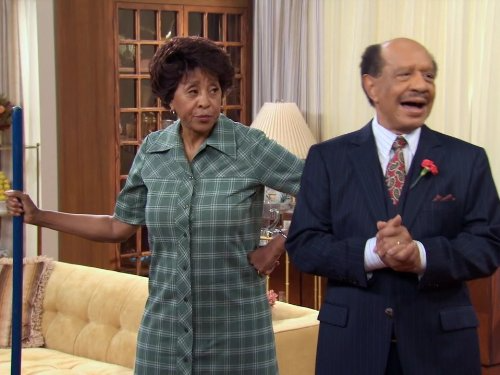
In an age where social media amplifies every cultural nuance, “The Jeffersons” stands as a testament to the enduring power of television to shape and reflect societal norms. In 2025, this pioneering sitcom, which aired from 1975 to 1985, is being revisited by new generations, who are discovering its potent blend of humor, aspiration, and unflinching social commentary. Far from being a relic of the past, the show’s exploration of class, race, and identity remains remarkably relevant, offering valuable insights into the persistent challenges and triumphs of the American experience.
Central to “The Jeffersons'” lasting impact is its fearless portrayal of George and Louise Jefferson as a Black couple who had achieved significant financial success. This narrative, a stark contrast to previous depictions of Black families on television, shattered stereotypes and offered a powerful image of Black affluence and upward mobility. George’s dry-cleaning empire symbolized a tangible realization of the American Dream, and his character, for all his flaws, became an unlikely symbol of entrepreneurial spirit and unwavering determination. In contemporary discussions about economic empowerment and closing the wealth gap, George Jefferson remains a complex but compelling figure.
The genius of the show also lay in its willingness to confront prejudice head-on, often through the vehicle of comedy. The Jeffersons’ interactions with their white, often liberal, neighbors and friends, the Willises, provided a fertile ground for exploring subtle forms of racism, class snobbery, and the complexities of interracial relationships. By presenting a mixed-race couple (Tom and Helen Willis) in a positive light, the show pushed boundaries and sparked conversations that were largely absent from mainstream media at the time. George’s prejudiced remarks, though sometimes jarring, were often a calculated satirical device to highlight the pervasive nature of bigotry from all sides.
Beyond its social consciousness, “The Jeffersons” excelled as a masterclass in comedic timing and character development. Sherman Hemsley’s iconic portrayal of George, with his distinctive walk and booming voice, anchored the series, while Isabel Sanford’s Louise provided warmth and a moral center. The dynamic between George and Florence, the sarcastic maid, produced some of the most memorable and hilarious exchanges in sitcom history. These well-defined characters, each with their own quirks and vulnerabilities, created a rich comedic tapestry that captivated audiences for over a decade.

The re-evaluation of “The Jeffersons” in 2025 also underscores its broader cultural significance. It wasn’t just a show about a Black family; it was a show about ambition, adaptation, and the struggle for acceptance in a changing world. It illustrated that even with material success, prejudice can still be a formidable barrier, and that true belonging often requires more than just a change of address. The series’ ability to balance laugh-out-loud moments with genuinely thought-provoking social commentary solidifies its place as a television landmark. Its enduring legacy is a testament to its courage, its wit, and its timeless exploration of what it truly means to “move on up” in every sense of the word.